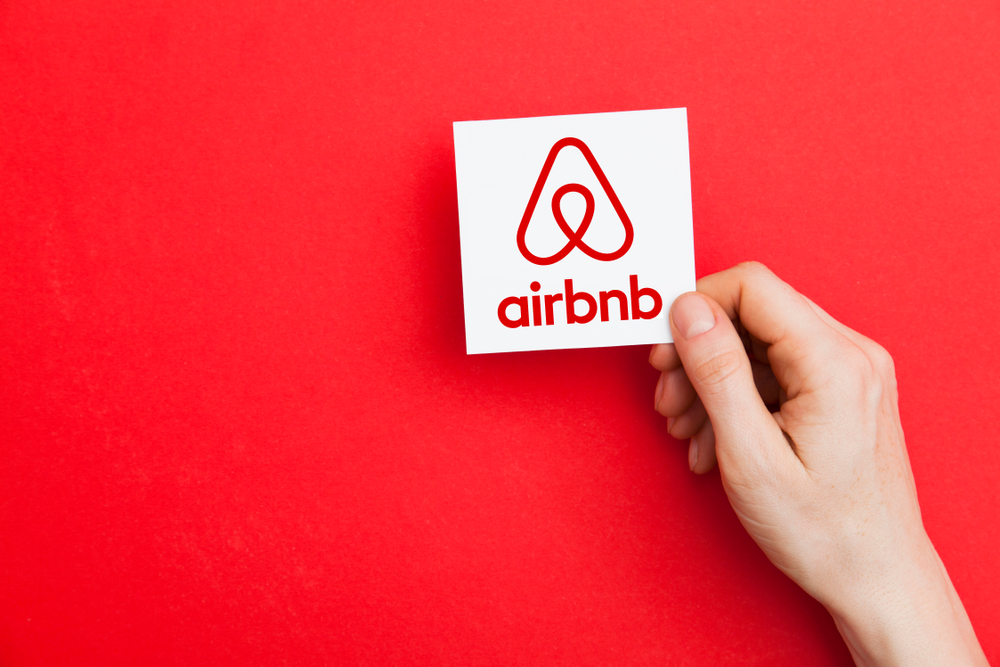
Airbnb, Inc. is an online market for spacing or offering lodging, principally homestays, or leisure experiences. The business does not own any of the real estate listings, nor does it host events; it acts as an agent, getting commissions from each booking. The business is headquartered in San Francisco, California, United States.
The business was regarded after its creators put an air mattress in their living room, successfully converting their flat into a bed and breakfast, in order to counterbalance the high cost of rent of their flat in San Francisco; Airbnb is a summarized form of its original name, AirBedandBreakfast.com.
In a nutshell, Airbnb is an online marketplace that connects individuals who want to rent out their spaces to persons who are in search for housings in those local areas. It presently has its mark in excess of 81,000 cities and 191 countries internationally. For a host, contributing to Airbnb is a way to make some profits from their spaces, but with the danger that the visitor might do damage to it. For visitors, the benefit can be comparatively low-cost housings, but with the risk that the property won't be as tempting as the listing made it seem.
The key take ways of Airbnb are:
- Tourists can frequently reserve an Airbnb for less than the cost of a hotel room.
- The chief risk to the tourist is that the property may not be as displayed on the website.
- The key risk to hosts is that visitors might do serious damage to their space rented out.
The advantages of Airbnb are:
Airbnb hosts list various diverse types of properties—single rooms, a suite of rooms, apartments, fixed yachts, houseboats, whole houses, even a castle—on the Airbnb website.
Hosts don't have to loosen up their pockets to list their properties on the website. Listings can contain written descriptions, snaps with titles, and a user outline where the probable visitor can get to know a little about the hosts and his property.
It's up to each host to choose how much to charge per night, per week or even per month.
Visitors can explore the Airbnb database—not only by date and location, but by price, kind of property, facilities, and the language of the host. They can also add keywords (such as "close to the Louvre") to supplementary narrow their search.
In the past few years, Airbnb has extended its contributions to comprise experiences and restaurants. In addition to the listing of accessible housings for the dates they wish to travel, persons searching by area will witness a wide range of experiences, such as classes and sightseeing, assisted by local Airbnb hosts. Restaurant listings also include reviews from Airbnb hosts.
As a protection for guests, Airbnb holds the guest's payment for 24 hours after check-in before releasing the funds to the host.
For hosts, Airbnb's Host Guarantee program "provides protection for up to $1,000,000 in damages to covered property in the rare event of guest damage, in eligible countries."
The disadvantages of Airbnb are:
Booking accommodations with Airbnb is not like booking a room with a major hotel chain, where you have a reasonable assurance that the property will be as advertised. Individual hosts create their own listings, and some may be more honest than others. However, previous guests often post comments about their experiences, which can provide a more objective view.
Probably the biggest risk for hosts is that their property will be damaged. While most stays go without incident, there are stories of entire houses being trashed by dozens of party-goers when the Airbnb hosts thought they were renting to a quiet family. Airbnb's Host Guarantee program, described above, provides some assurance, but it may not cover everything, such as cash, rare artwork, jewellery, and pets. Hosts whose homes are damaged may also experience considerable inconvenience.
Airbnb imposes a number of additional fees (as, of course, do hotels and other lodging providers). Guests pay a guest service fee of 0% to 20% on top of the reservation fee, to cover Airbnb's customer support and other services. Prices displayed in the currency the user selects, provided Airbnb supports it. Banks or credit card issuers may add fees if applicable. And, while listings are free, Airbnb charges hosts a service fee of at least 3% for each reservation, to cover the cost of processing the transaction.
Both hosts and guests from the European Union, Switzerland, and Norway may be subject to a value-added tax (VAT). And depending on their location, hosts may be subject to rental income taxes. To assist with U.S. tax compliance, Airbnb collects taxpayer information from hosts so they can provide an account of their earnings each year.
Before listing their properties on Airbnb, would-be hosts need to check their local zoning ordinances to make sure it's legal to rent out their properties. Hosts may also be required to obtain special permits or licenses.
Funds raised by Airbnb:
In January 2009, the company received $20,000 in venture funding from Y Combinator.
In April 2009, the company raised $600,000 from Sequoia Capital, with Youniversity Ventures partners Jawed Karim, Keith Rabois, and Kevin Hartz participating.
In November 2010, it raised $7.2 million in a Series A round led by Greylock Partners and Sequoia Capital.
In July 2011, it raised $112 million in financing led by Andreessen Horowitz. Other early investors included Digital Sky Technologies, General Catalyst Partners, and A-Grade Investments partners Ashton Kutcher and Guy Oseary.
In April 2014, the company closed on an investment of $450 million by TPG Capital at a company valuation of approximately $10 billion. Additional funding was provided by Andreessen Horowitz, Sequoia Capital, Dragoneer Investment Group, T. Rowe Price and Sherpa Capital.
In June 2015, Airbnb raised $1.5 billion in a Series E funding led by General Atlantic and joined by Hillhouse Capital Group, Tiger Management, Kleiner Perkins Caufield & Byers, GGV Capital, China Broadband Capital, and Horizons Ventures.
In September 2016, Airbnb raised $555.5 million in funding from Google Capital and Technology Crossover Ventures, valuing the company at $30 billion.
In March 2017, Airbnb raised $1 billion in funding, bringing total funding raised to more than $3 billion and valuing the company at $31 billion.
On May 30, 2018, CEO Brian Chesky said Airbnb "will be ready to IPO next year, but I don't know if we will."
On March 13, 2019, Chief Strategy Officer Nathan Blecharczyk stated "We have already said that we are taking the steps to be ready to go public in 2019. That doesn't mean we will go public in 2019."

